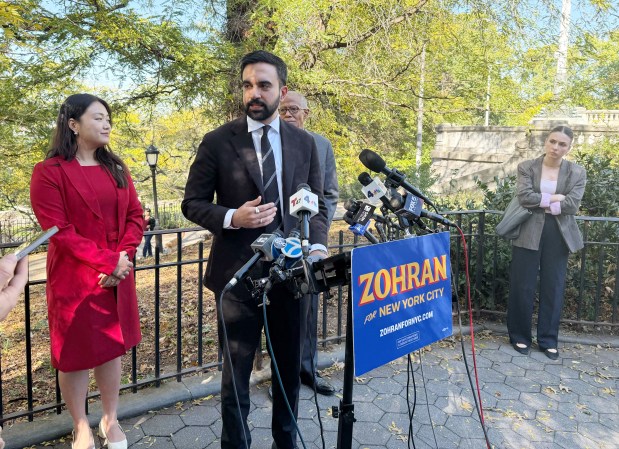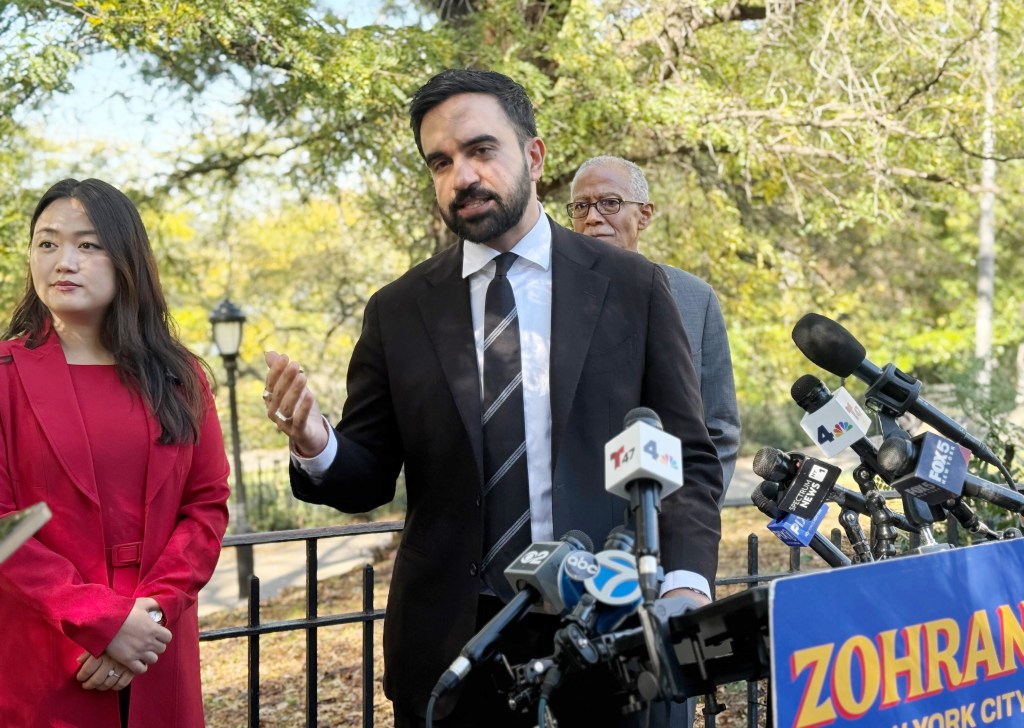Democratic mayoral front-runner Zohran Mamdani, who has spoken at length about raising taxes to help fund his affordability agenda, outlined a plan Tuesday to cut costs in New York City’s public schools.
Mamdani estimated his efforts would result in at least a 10% reduction in what he called “redundant” spending on Education Department contracts — though he did not provide a firm dollar amount for his goal.
“For too long, we’ve allowed individuals like Elon Musk to pretend as if concerns of efficiency and waste are that of the right-wing, when in fact they should be the bedrock of any progressive politics,” said Mamdani, a Democratic Socialist, on the Upper West Side, in a reference to the Department of Government Efficiency or “DOGE.”
Mamdani has largely pushed for increasing taxes on corporations and the wealthy, and using the revenue to fund his campaign promises such as free child care for all New York families. But as Gov. Hochul has continued to throw cold water on tax hikes, the Democratic nominee has signaled his openness to other funding sources, which could include savings elsewhere in the city budget.
The Education Department’s $41.2-billion budget is by far the largest of any city agency, and includes about $10 billion in contracts with external vendors. Mamdani, while defending many contracts as “essential,” also claimed the procurement process is imperfectly managed — resulting in duplicative spending and an overall lack of accountability.
Mamdani’s plan has three parts: reduce wasteful spending, overhaul procurement infrastructure, and ensure vendors answer for the quality of their services.
“We will follow every single dollar,” he said. “That means annual audits of the top 50 vendors and the 25 largest contracts, that means launching an initiative to review every single conduct contract as it comes up for renewal.”
 Democratic mayoral front-runner Zohran Mamdani is pictured on Tuesday, Oct. 21, 2025, during an Upper West Side press conference to announce procurement reforms at the Department of Education. (Cayla Bamberger / New York Daily News)
Democratic mayoral front-runner Zohran Mamdani is pictured on Tuesday, Oct. 21, 2025, during an Upper West Side press conference to announce procurement reforms at the Department of Education. (Cayla Bamberger / New York Daily News)
Mamdani would also merge two DOE procurement offices while opening borough-based “hubs,” transition education vendors onto the same portal used by other city agencies, and require new trainings and certification for all procurement staff. To hold vendors accountable, his main idea is a “ratings” dashboard where principals and teachers can grade vendors on quality, timeliness and reliability, among other factors.
The DOE’s procurement process was put in the hot seat under Mayor Adams as investigations swirled around his former schools chancellor David Banks’ dealings with vendors represented by his brother Terence. More recently, the office faced questions from the city’s comptroller, Brad Lander, over exorbitant spending at one Brooklyn restaurant.
Ana Champeny, vice president for research at the Citizens Budget Commission, acknowleged procurement reform is “not a sexy proposal to be campaigning on,” but one that is very worthwhile.
“This is bread and butter. This is the heart and soul of government,” Champeny said. “Our research has found we’re spending more and more... but we’re seeing very limited improvements in educational outcomes, and too many of our children are still not reading and doing math on grade level. So trying to figure out how to get bang for your buck on resources is really important.”
“An agency as large as DOE, as expansive — with as many schools, as many offices — there is, in my mind, there’s no doubt there’s duplication and inefficiency that can be achieved by a really thorough and detailed analysis of those 3,000-plus contracts.”
Originally Published: October 21, 2025 at 5:14 PM EDT

